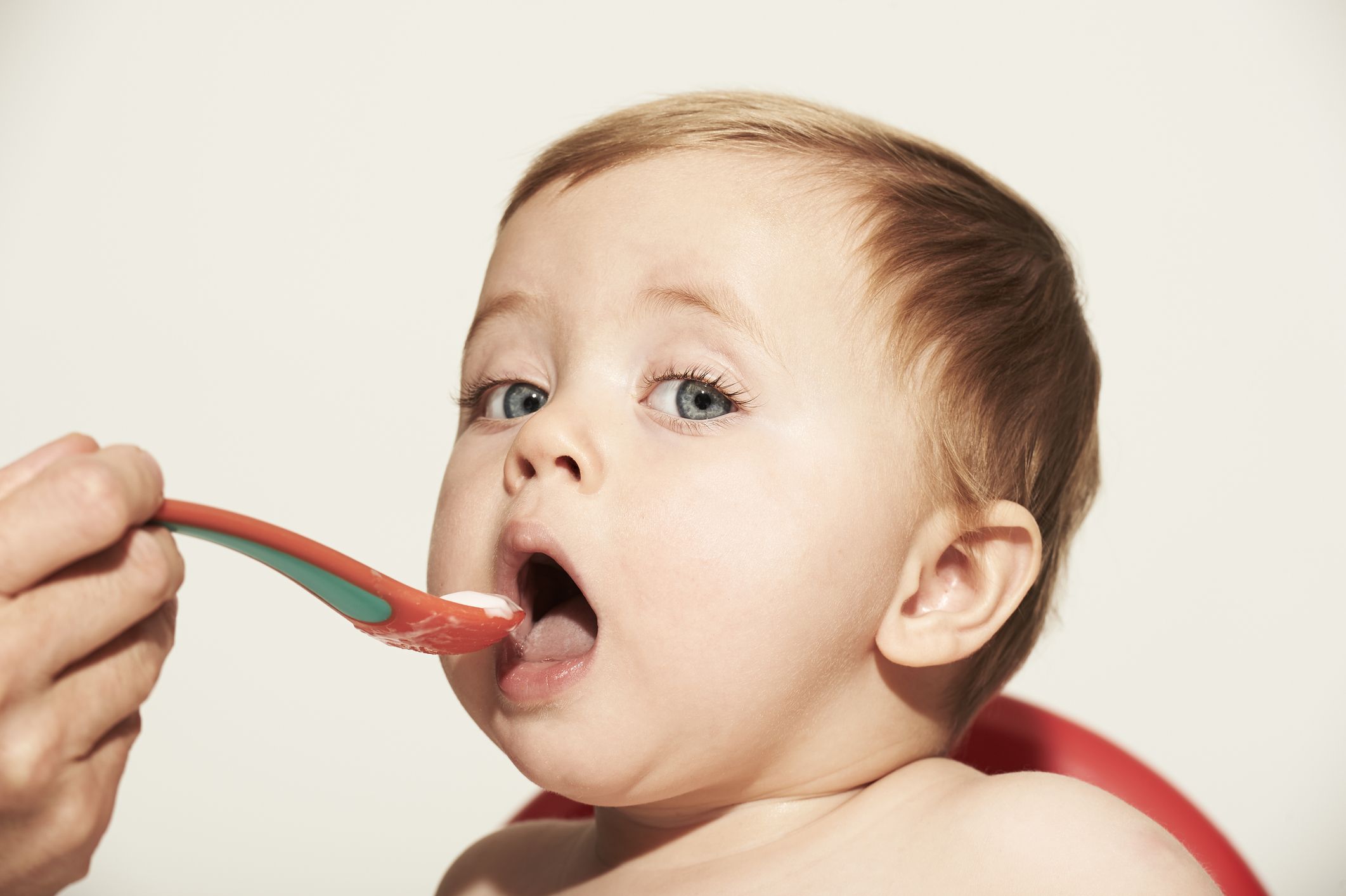
Jars of pureed baby food, designed specifically for babies… For the past century, this is what parents have been told to give their baby when starting to wean them onto food. However, my work involves helping parents to introduce real food to their babies, since babies actually don’t need their own special food!
My name is Kelly and I am a Registered Associate Nutritionist (ANutr) with a Masters Degree (MSc) in Human Nutrition and additional training specialising in baby and toddler nutrition. I begun my nutrition career after having already spent several years working in the advertising world. I have always been a foodie and reached a point where I wanted a more fulfilling line of work, so I trained to be a qualified, evidence-based nutritionist, and haven’t looked back since. I am also now mummy to a nine month old baby boy, who certainly keeps me on my toes!
I am a big advocate of introducing whole, solid foods when it comes to weaning babies onto food. Contrary to what parents have been led to believe, there is no sound evidence to suggest that babies need purees when they first start eating solids. In fact, there is more evidence to suggest that giving babies big, whole pieces of food from when they first start weaning has more benefits. Firstly, it exposes babies to a wide variety of textures and flavours, which can help prevent picky eating when they’re older and make them accepting of a varied diet. Secondly, this approach encourages self-feeding; self-feeding has many benefits including quickly advancing babies’ oral motor skills, putting baby more in control of their appetite and developing safe eating habits due to trial and error with the size of their bites, etc. Additionally, offering whole pieces of food is more convenient for parents; baby will very soon be eating the same meals as the rest of the family!
Are purees completely void of benefit? No. Purees can be beneficial for some babies in particular circumstances, such as those who have developmental delays, those who struggle to gain weight and more. And purees can be good bases for folding whole foods into. However, what purees fail to do is teach baby how to chew, which is the goal of weaning baby onto solids. Babies must learn to chew in order to develop the skills necessary for eating food.
Babies learn to chew thanks to two reflexes which are present from birth; the phasic bite and the transverse tongue reflex. The phasic bite is triggered when baby’s gums are stimulated and is the up and down movement of the jaw. The transverse tongue reflex is triggered through the lateral borders of the tongue and involves side to side tongue movements. Both reflexes help babies practise chewing. However, these reflexes begin to fade around nine months, making the 6-8 month window the perfect time to help baby learn to chew! I advise that parents take advantage of these reflexes whilst they can.
To trigger these reflexes, encouraging baby to self-feed with whole, solid foods is key. And these foods can be offered to baby right from when they start weaning, around six months of age. They can be offered in a few ways; whole pieces of food that can be easily mashed when chewed, slightly more resistive foods which can still be broken down when sucked or gnawed, and highly resistive (‘unbreakable’) foods which are more for chewing practice than for eating (which is fine!). Some examples of the latter include a mango pit, corn on the cob core, pineapple core, watermelon rind, a chicken bone, a well-done steak strip and more.
To reassure parents who are concerned about choking, I like to remind them that babies have several in-built safety mechanisms (reflexes) to help prevent this. One of these is the gag reflex, which is one most parents will see their baby exhibit at some point and triggers when food that hasn’t been chewed enough ends up too far back in the mouth. When triggered, the airways close and food is thrusted forward in the mouth and usually spat out. Importantly, research has found that waiting to introduce solid food to baby beyond eight or nine months can actually increase the choking risk. This is because a baby’s gag reflex is less sensitive by this point, therefore this reflex is less able to protect them. Also, incidents of a child truly choking on food are very rare, which should provide parents with more confidence around introducing solid foods to babies. All of this being said, it is important that all parents and caregivers are familiar with CPR guidelines should the worst happen. It is also important that baby is eating in a safe, distraction-free environment and sat upright in a stable highchair with good food support and straps to prevent injuries.
For babies, mastering the skill of eating takes time, and progress will not be linear. They need to be given the opportunity to practice them, with a wide variety of food textures and flavours and freedom to make mistakes. For parents, this means offering baby the same foods as they would eat themselves, simply adapting the cooking time and preparation to be appropriate for baby’s age. Generally speaking, it is recommended to offer baby bigger pieces of food to begin with, and then making them into smaller, bite sized pieces once baby develops their pincer grip around 9 months. After 12 months, there are generally less considerations around how to offer food to a child and those who have been practising chewing solid foods for a few months can mostly eat the same foods as adults with a few modifications. For more specific advice though, it is advisable for parents to do their own research on foods/preparation of some foods that pose particular choking hazards and/or work directly with a health professional who is trained in this area. With the right knowledge though, both parents and babies can enjoy the weaning process to its full!
Thank you for reading, and happy weaning! x
Note: this advice should not replace tailored advice given to parents for their children based on individual circumstances and parents are responsible for their own child’s wellbeing. For more information and support, it is recommended to work with a qualified health professional.

am a Registered Associate Nutritionist (ANutr) with a Master’s Degree in Human Nutrition from St Mary’s University, London. This title means I offer evidence-based nutrition and am accredited by the Association for Nutrition, which is the only nutrition register recognised by Public Health England. I have also completed additional training in my nutrition specialism; baby and toddler nutrition.
I decided to become a nutritionist for a couple of reasons. Firstly, I’ve always been a ‘foodie’ and wanted other people to love and appreciate food as much as I do. Secondly, I really enjoy working with people and it is so rewarding to know that my approach is helping individuals in search of nutrition guidance.
I became a mum to a baby boy in 2022 and it was then that I knew I wanted to specialise in baby and toddler nutrition. It had always been an interest of mine, but once I truly understood the challenges of parenting and lack of credible support available around weaning children onto solid foods, I knew it was my calling! Hence the majority of my freelance work lies in this area and I absolutely love it.
Before I decided to study nutrition several years ago, I used my Bachelor of Arts degree in Marketing to work in the advertising and marketing industry for several years. I have worked for big tech companies like Amazon and Microsoft, as well as for creative advertising agencies like WPP and smaller start-up businesses. As a result, I believe I have a unique set of skills that I apply to my nutrition work; being analytically minded and results-driven, I am used to solving problems and finding solutions to help my clients meet their goals.
Please head to the Contact page if you would like to work with me.
Kelly’s Website: https://www.kellylightnutrition.co.uk/
Contact: nutritionistkellylight@gmail.com



Comments (0)